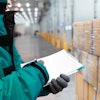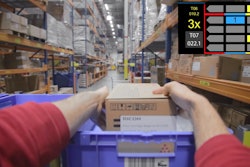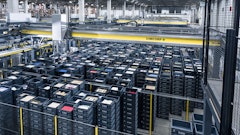
An array of new technologies is set to significantly alter — and likely disrupt — the $4 trillion global logistics business over the next several years, according to The Wall Street Journal.
Smartphone apps and GPS technology have already removed the boundaries between factories and roads. Sophisticated tracking software is making it easier and faster to deliver shipments, manage schedules, monitor cargo, plan routes and avoid delays, all in real-time. The result: faster, cheaper and more sustainable circulation of goods.
But there are even more advanced logistics technologies looming just around the corner. Here’s a look at three that could have significant impact.
- The Uberization of trucking. A growing number of trucking companies have begun to experiment with Uber-like apps and services, hoping what’s worked so well for ride-sharing will translate to large-scale commercial shipping.
- The robotization of the warehouse. The robot stock picker is already starting to revolutionize warehouse logistics. Beginning last summer, more than 15,000 Kiva Systems robots began gliding through 10 of Amazon’s U.S. warehouses, picking up goods and reducing the distance human workers have to walk to find products.
- Augmented reality and wearables. The next big advance in logistics tech could be augmented-reality: wearable digital systems that promise to reinvent the costly and cumbersome picking process in warehouses.
To read more, click HERE.
Editors Insight: Everyone agrees that technology is destined to change the logistics industry. Where there is less agreement is over how soon this will happen. While technology is advancing faster than at any time in history, the sheer volume of change makes it difficult for many companies to implement new technology.
Logistics companies currently use many different systems for attending to disparate functions such as transportation, warehousing, production (if the company produces the goods it sells), and interfacing with other functions within the company, such as sales and finance. Companies have separate silos for managing these functions, and integrating them into one enterprise system is difficult. It is especially difficult because the data keeps expanding in all of these areas.
Companies that want to take advantage of evolving logistics technology need to have people on staff that understand it. In most cases, they need to hire outside consultants and data management specialists to help deploy the new technology.
The investment in technology and outside expertise needed to deploy technology successfully presents a barrier to change in most logistics companies.
As promising as the future is for global logistics, the future will be evolutionary and not revolutionary. 10-20-15 By Elliot Maras


















